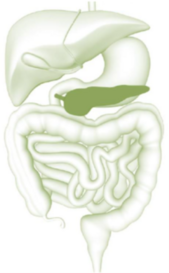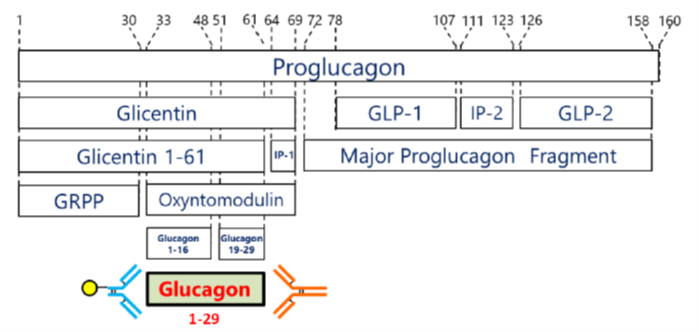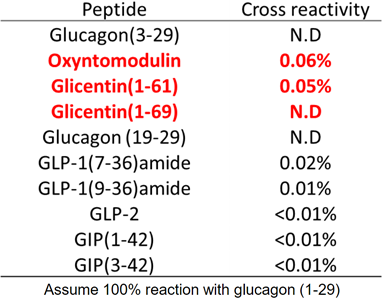Product News
- Product News2023/06/28
- Glucagon (Summer Newsletter 2023)
Related Materials

We hope this newsletter finds you well. This Newsletter highlights about Glucagon and how important to detect specific Glucagon (1-29).
Type 2 diabetes, around 95% of all diabetics, is caused by decreased insulin secretion and insulin resistance. Insulin is a hormone secreted by the beta cells of the pancreas, which lowers blood glucose levels by drawing sugar from the blood into the body. On the other hand, glucagon is a hormone secreted from the alpha cells of the same pancreas and increases blood glucose levels by increasing the production of sugar in the liver. Insulin and glucagon are considered "antagonistic hormones" because they maintain constant blood glucose levels by balancing each other.
Glucagon-centric theory (PMID:22214853)
The presence of a certain amount of glucagon, rather than the presence or absence of insulin, may contribute to elevated blood glucose levels, and the "glucagon-centric theory" was published in 2012 by Unger, Cherrington, and colleagues.
Glucagon ELISA Kit and Antibody
|
IBL has successfully developed a highly sensitive and specific ELISA using novel N-and C-terminal specific paired antibodies. |
||||||||
|
Anti-Glucagon (52A1A) Rat IgG MoAb (#10505)
|
Please feel free to contact us.
Sales Department
Antibody related Business Division
Immuno-Biological Laboratories Co., Ltd.
Email: do-ibl@ibl-japan.co.jp

![]()



















